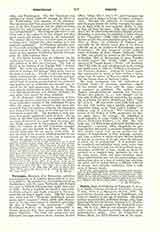

Verstegan, RICHARD, alias ROWLANDS, publisher and antiquarian, b. at London, about 1548; d. at Antwerp 1636 (?). His grandfather, who had migrated from Guelderland, took the name Rowlands, and Richard was sent to Oxford (Christchurch) under this name in 1565. Being a Catholic he found it impossible to obtain a degree, and finally returned to Antwerp, assuming his proper family name. His first important work was his “Theatrum crudelitatis hmreticorum nostri temporis” (Paris, 1583), with illustrations of the late martyrdoms in England, continuing the idea of Persons’, “De persecutione” (1582). Sir Edward Stafford, the English ambassador to France, declared that these pictures were libels on Queen Elizabeth. The book was confiscated and destroyed (one page survives in trs., London, Record Office, “Dom. Eliz.”, 165, f. 77), and Verstegan was arrested and in danger of being extradited (January, 1584). Through the influence of Cardinal Allen and the papal nuncio the author was soon free again. On April 25, 1584, he went to Rome (Foley, V, 555) to beg aid from the pope. This was refused (May 15), but he afterwards obtained a Spanish pension. Returning to Antwerp, he published a fuller edition of his “Theatrum” (1588, 1592; French tr., 1607). He was at this time corresponding agent for Cardinal Allen at Rome, the Catholics in England, and especially for the Jesuits (some fifty of his letters, 1591-95, are in the Archives of Westminster and of Stonyhurst). He also composed several political tracts (Calendar of State Papers Addenda, 1589, p. 290), and printed an answer to the Proclamation of October, 1591 (A Declaration of great Troubles intended against the Realm, 1592), which was answered by Francis Bacon (“Works”, ed. Spedding, 1862, VIII, 146); he took a leading part in the writing and publication in 1595 of “Dolman’s Conference” (see Robert Persons). During the heated Appellant controversy he seems to have written a manuscript tract in answer to Watson, which drew upon him the furious abuse of Anthony Copley.
His main occupation was the publication of Catholic books of devotion, sometimes signed by his initials, but never with his name either as composer or publisher. The earliest known English post-Reformation manuals (see Prayer Books) and primers (q.v.) were brought out by him, and, March 25, 1595, he applied for the monopoly of printing the latter (Stonyhurst MSS., “Anglia”, ii, n. 4). He also wrote verse, with little poetic fire, but with facility and a homely, simple taste, sometimes rising, as in “Our Lady’s Lullaby”, to religious song of real merit. The translations of hymns in the Primer of 1599, presumably by him, are again above the average. He published a small collection of verse, “Odes in imitation of the Seaven Penitential Psalms“, s. 1., 1601. His chief work was, “A Restitution of decayed Intelligence in Antiquities” (Antwerp, 1605), remarkable as perhaps the first endeavor to persuade Englishmen that they should regard with special predilection the remains of Anglo-Saxon in their language, customs, and laws, a matter in which (despite obvious faults) he was far in advance of his age, when the influence of Latin was so predominant. It is probable that he translated and published many more works than can now be traced to him, but the later Dutch works, sometimes attributed to him, should no doubt be ascribed to a younger man, probably his son, of the same name. Exile and other hardships sometimes embittered his pen; but his correspondence and publications show us a man of faithful and affection-ate mind, and of varied talents, a diligent collector of literary and scientific curiosities, with a wide circle of literary friends.
J. H. POLLEN

